On Sustainable Hemp Farming Success: An Interview With Carlos Hayden
In this interview:
- How Carlos got started in hemp farming
- Hemp cultivation challenges and solutions
- Sustainably preventing mold and pests
- How Carlos mitigates mold once it occurs
- Difference between hemp and cannabis farming
- How Carlos cuts costs and maintains quality
- Biggest industry issues today
- Carlos' advice for hemp farmers
Three years ago, Carlos Hayden started farming hemp for the first time in Florida. Even though he had a decade of prior experience cultivating cannabis in Oregon and Michigan, growing hemp in South Florida threw several new challenges his way.
Today, Carlos is a full-fledged leader in the South Florida community. On top of starting a farmers co-op, he recently joined a hemp processing company, founded a consulting firm, and a hemp and cannabis genetics company. Carlos faced significant difficulties, but he rose above them while committing to moral and sustainable farming practices.
We spoke with Carlos to learn about his hemp growing obstacles, sustainable solutions, and why he believes farmers can be ethical producers and profitable at the same time.
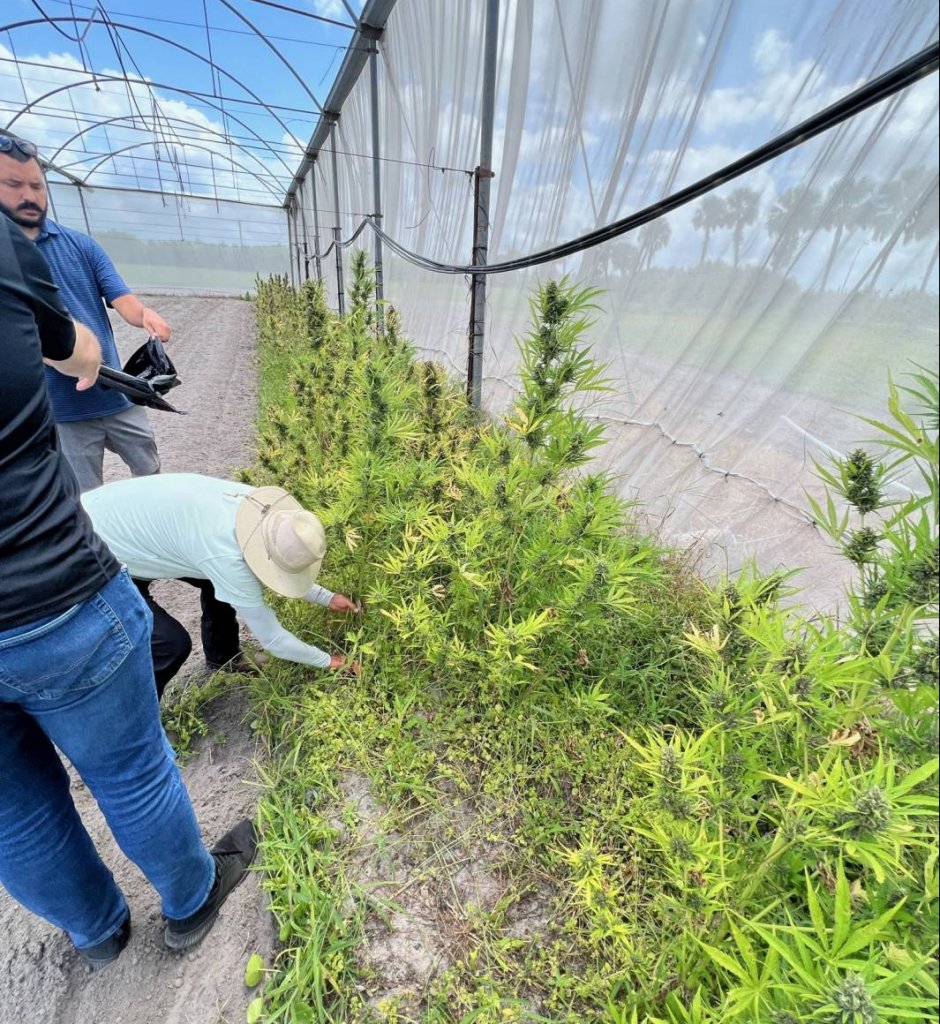
ACS: How did you find your way into hemp farming in Florida?
CH: I'm a Florida native, raised on the Treasure Coast. My family had a tree farm in Jupiter Farms that I would visit growing up. During this time, my Grandfather, who raised me, was diagnosed with lung cancer.
I witnessed him suffer and eventually turn to cannabis to alleviate his chemotherapy symptoms. Watching him eat and sleep with greater ease due to cannabis made me curious about the incredible benefits of the plant.
Then, about ten years ago, I joined a Michigan caregiver group that produced medical marijuana. Later, as laws changed in other states, I moved to Oregon to join the recreational market. In Oregon, I learned how to farm cannabis on a mass scale. Eventually, I moved back to Florida due to market volatility.
When I arrived in Florida, I got my MBA and started working at Cleveland Clinic. Then the pandemic struck, and Florida’s hemp and cannabis market began booming. I felt like it was the right time to try again. So I quit my corporate job, took a leap of faith, and invested in a hemp farm in Vero Beach.
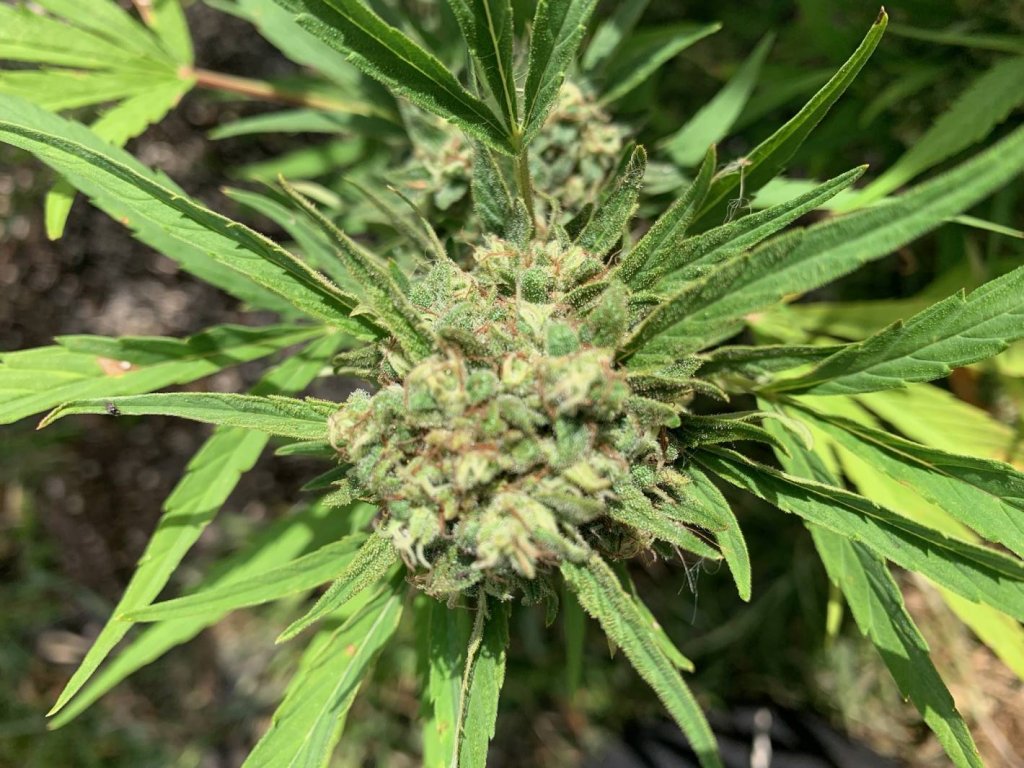
ACS: What are you doing in the hemp industry now?
CH: Today, I work with sustainable hemp practices and farmers from seed to oil. I founded the Volition Co-op, which consists of conventional and organic operations of all sizes–from craft to large-scale commercial growers.
The farms are spread across the state of Florida. It's a fantastic group aiming for the same purpose. We all want to produce the highest quality and most cost-effective hemp possible.
I am also the founder and partner of multiple companies: a genetics company, Volition Seed, Hayden Hemp Consulting, and Botanical Processing. At Sea Rock, we help Volition farmers process up to 1,000 pounds of biomass per hour. We shuck and buck the flower off the stems, and support ethanol distillation, trimming packaging, and pre-roll production.

ACS: What hemp farming challenges did you face when you first started in Florida?
CH: The first couple of seasons were tough, but that’s how I learned the practices and standards of Volition Co-op implements now. Florida is unique because we can grow year-round, but the biggest challenge is learning to grow the crop in the summer.
Hemp is a finicky plant, and Florida’s high temperatures and soil quality make the process more complex. For example, Florida’s sandy soil is very porous, which lowers the holding capacity of nutrients. Weeds are also an issue, and they can lead to pests and diseases.
Unfortunately, most chemical companies teach farmers to enrich the soil and stave off pests by adding pesticides, heavy metals, and other harmful agents. Yes, those methods work, but they hurt the soil, plants, and people who ingest them.
Another huge issue for hemp growers in humid climates is mold. Unfortunately, supposed experts teach hemp farmers to wash mold-covered plants with acidic solutions to mitigate the problem. But that is a huge mistake. I have tried this method, and it has negatively affected the quality of the product.
I can’t stress this advice to farmers enough: Please don’t wash the plants. Adding acidic elements, such as lemon water or baking soda, compromises the entire botanical profile, including terpenes, flavonoids, taste, and even aroma. I’ve seen it firsthand.
ACS: How can hemp farmers prevent mold and pests in humid climates like Florida without harmful chemicals?
CH: In farming, it’s all about managing costs against profit and scale. Fortunately, farmers can produce healthy plants without damaging soil with unsafe chemicals. To improve quality and reduce costs, I utilize a mix of conventional and organic inputs. “Synganic” is the term I like to use.
Microbes are a massive element of my sustainable cultivation and quality control methods. I use microbes manufactured in a lab setting here on the coast of South Florida.
These unique blends of microbes are tailored for our soil type. The formula is organic and an efficient alternative to harmful compounds like nitrogen and phosphorus, which pollute the soil and waterways.
To mitigate mold and weeds, I use organic biologicals on a strict schedule throughout the crop cycle. The microbes improve soil quality, increase nutrient absorption, and build immunity, enabling plants to withstand pests and diseases. As a result, I’ve been able to prevent significant crop loss.

ACS: What should hemp growers do to mitigate mold once it has occurred?
CH: If you catch it early, you can mitigate mold on the field by cutting off the contaminated parts. That way, you can still use the remainder of the plant.
However, after harvest, you cannot safely mitigate mold while maintaining the plant’s integrity. Unfortunately, once you have mold in your dry space, you’ll need to throw out the crops altogether and take the loss.
Mold-ridden hemp and marijuana can cause major long and short-term health issues. So attempting to save a compromised yield post-harvest is simply not worth the risk of harming your end-user.
ACS: Is growing hemp the same process as growing high-THC cannabis?
CH: There are a lot of hemp newbies like myself who come from cannabis backgrounds. Unfortunately, many people are set in their ways and try to apply the cannabis model to help.
However, the two crops don’t share the same production scheme. As a result, many farmers get frustrated when their hemp tests “hot” (above 0.3% THC) and fails to meet compliance standards.
Florida is considered the strictest state for hemp regulations, so farmers here must test to get THC potency under control. Fortunately, testing with ACS Laboratory and working with Volition Seed have been vital to staying in compliance. ACS Laboratory has provided invaluable support and transparency and enabled trust in the supply chain.

ACS: How do you suggest farmers cut hemp cultivation costs without sacrificing quality?
CH: The mission of Volition Co-op is to help farmers grow the highest quality hemp in the most cost-effective way possible. To that end, we work with farmers on healthy cultivation protocols that meet their budgets. Our budget-friendly production model supports growing hemp plants from seeds rather than clones.
Clones or tissue culture from a nursery is too expensive, and if farmers rely on those methods, they won’t be able to sell at a reasonable price point and survive in this volatile market. At the same time, seed growing can be challenging without the right genetics.
That’s why I formed Volition Seed. My goal is to improve seed resilience, hardiness, and quality so farmers never have to worry about the genetics they are sowing.
ACS: What is the biggest issue the hemp-growing industry needs to tackle right now?
CH: I think customer education is the biggest issue driving down hemp’s market value–and that is a massive problem for farmers trying to carve out a place for themselves.
We need to educate consumers about the value of hemp-derived CBD and why pure hemp extracts are so essential. Customers have to understand what this plant offers, especially the benefits of the various cannabinoids, flavonoids, and terpenes.
I believe CBD can be as widespread and significant as ibuprofen with proper consumer education. However, brands need to improve the quality of what’s on shelves.
Right now, there is so much CBD snake oil because there are so many competitors in the space. Many process manufacturers cut products with MCT oil, hemp seed oil, and different compounds that lessen the quality but increase the yield. Because consumer education is minimal, people don't understand how this dilutes the product and makes it less effective.

ACS: What is the most crucial advice you have for Florida's hemp farmers?
CH: Growing a quality product is the best way to make yourself stand out and ensure you get the business you deserve at the end of every crop cycle. Hemp has the potential to be a cash crop all year round in Florida.
Even if you’re new to farming, you can do it. You don’t have to start with massive acreage or be commercialized to have success. Just grow a high-quality product, and it is likely to sell.
Carlos Hayden, MBA
Direct: 772-285-2157
Email: HaydenHempFL@gmail.com
Instagram: @Volition_Seed
Growing high-quality products is mission-critical for hemp farmers. That’s why it’s so important to follow ethical organic-based protocols, like Hayden’s Volition hemp program. It’s also essential to test hemp early and often, starting from the pre-planting phase to harvest and post-harvest production.
ACS Laboratory offers nationally accredited soil testing that looks for harmful substances, such as pesticides, molds, bacteria, and heavy metals. We also test hemp throughout its lifecycle for safety, compliance, quality, and potency.
Quality cannabis testing backed by easy-to-understand COAs is essential to educate consumers and protect their health. Contact our ACS Laboratory team to learn about submitting your hemp for testing today.



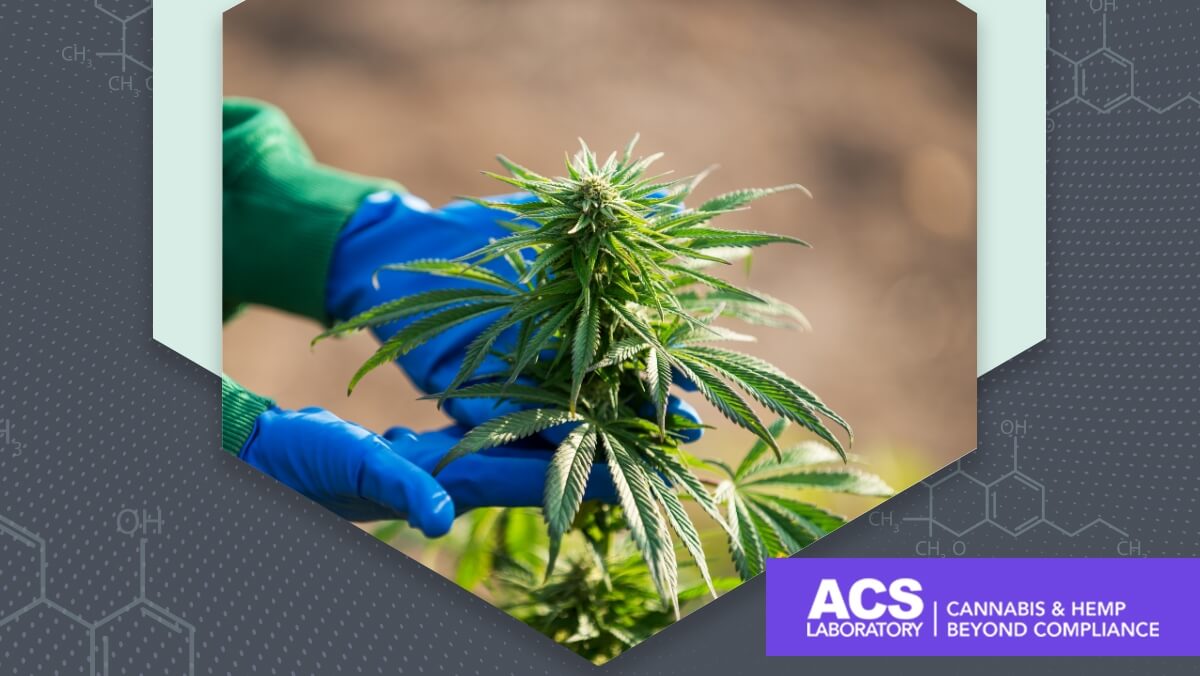
.jpg)
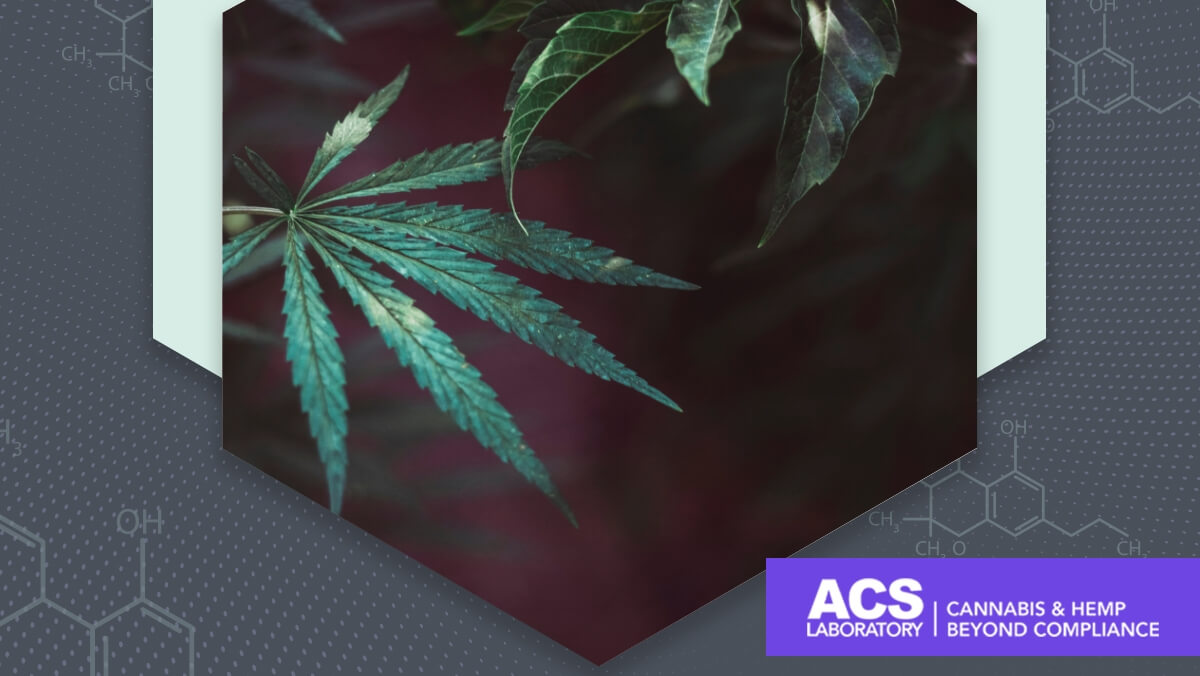
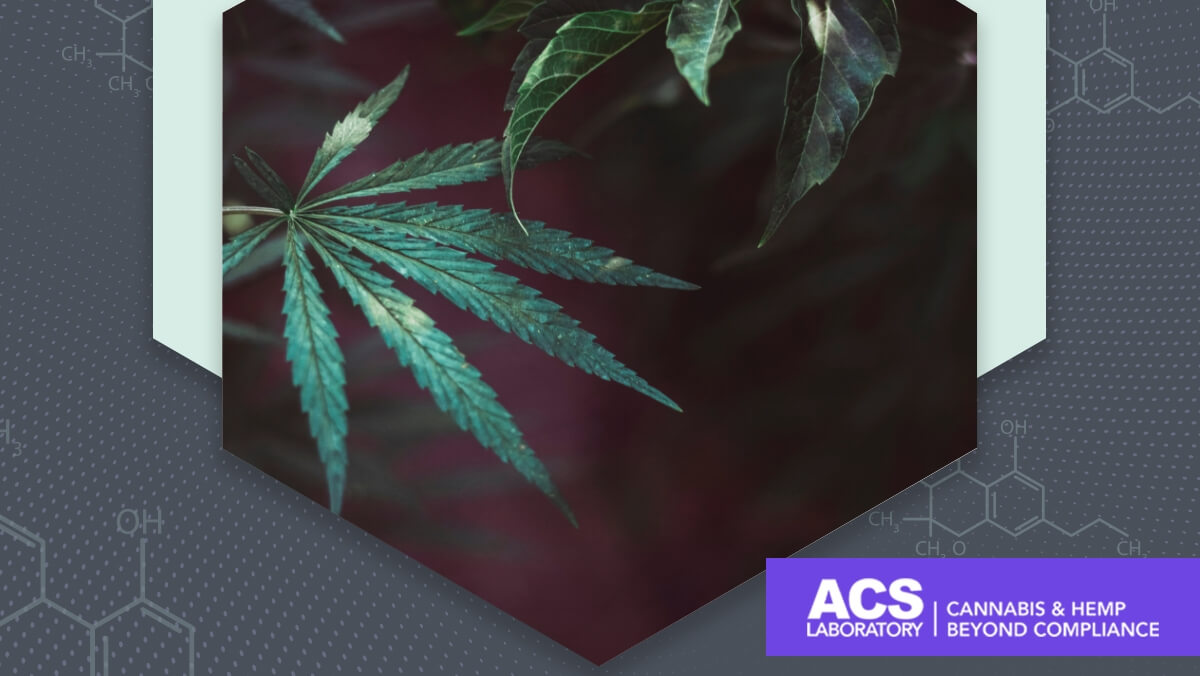
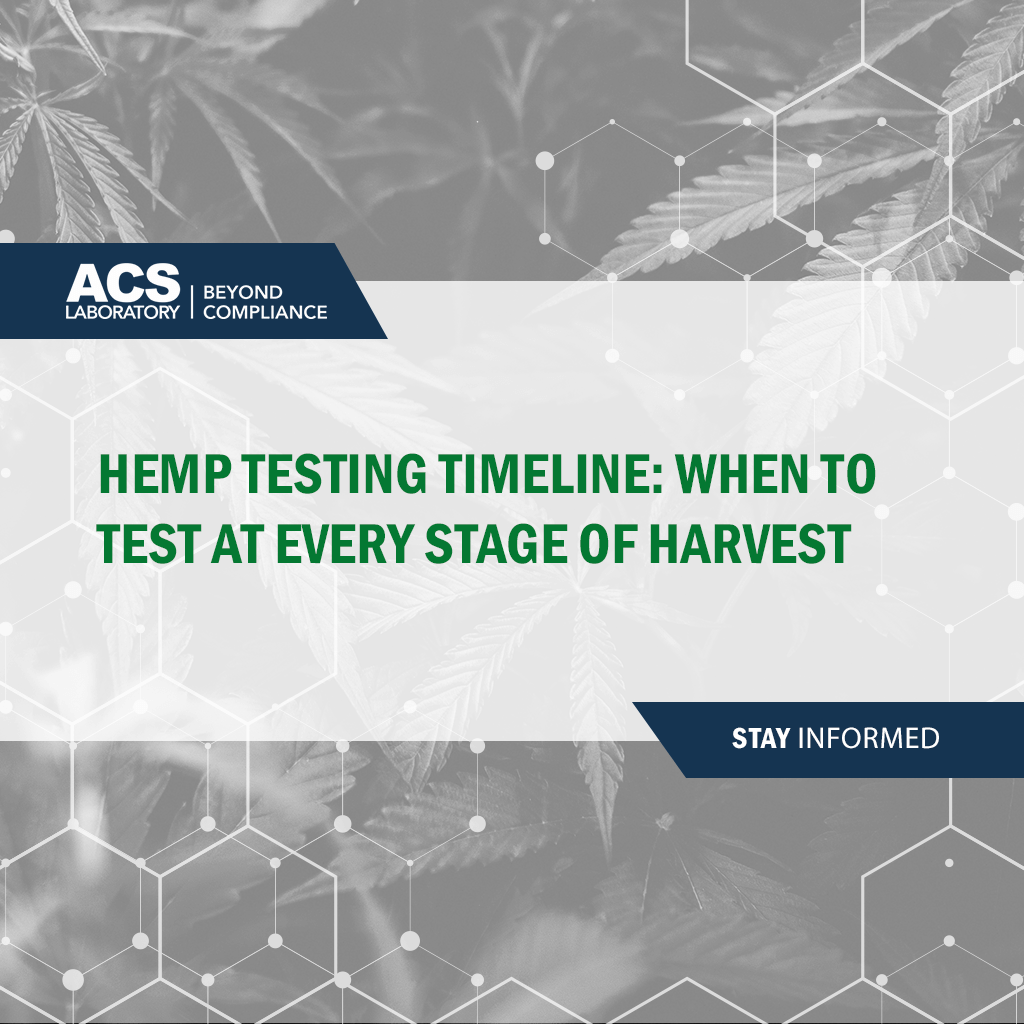

.png)
.png)
.png)
.png)
.png)